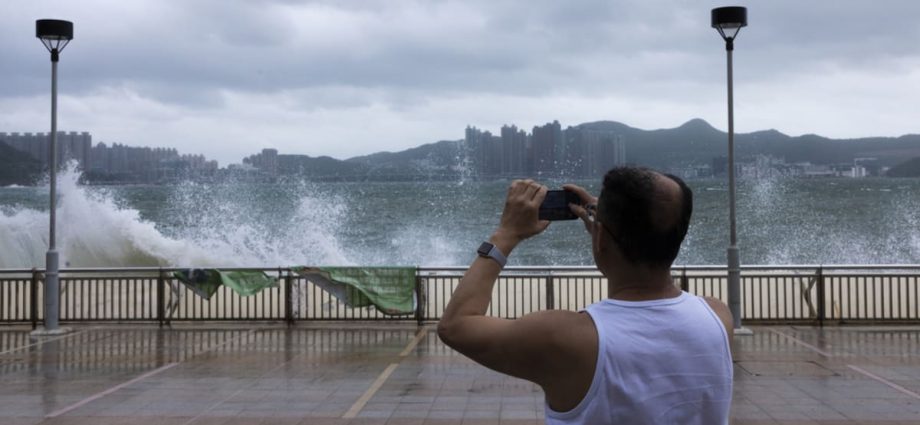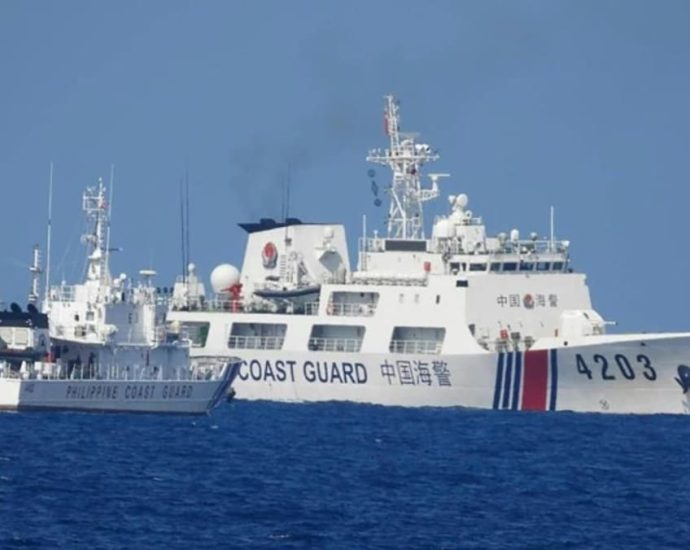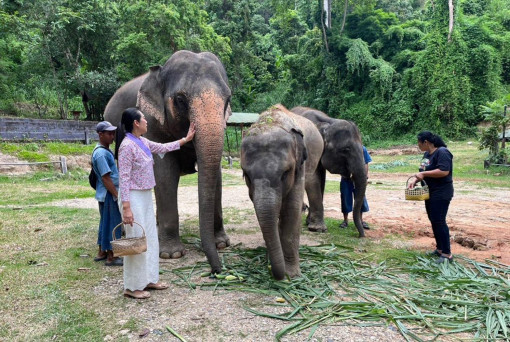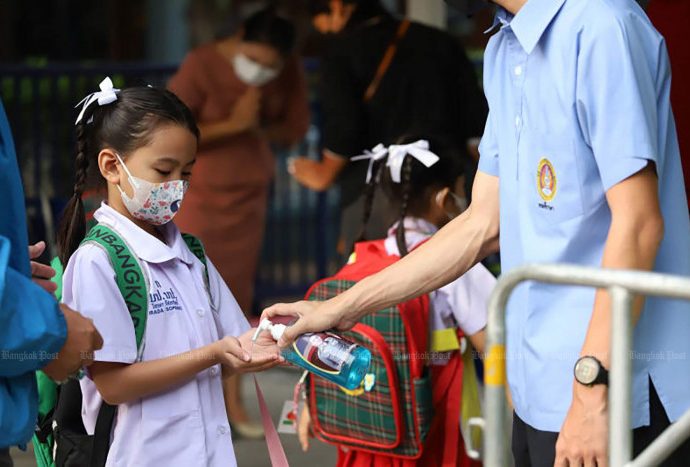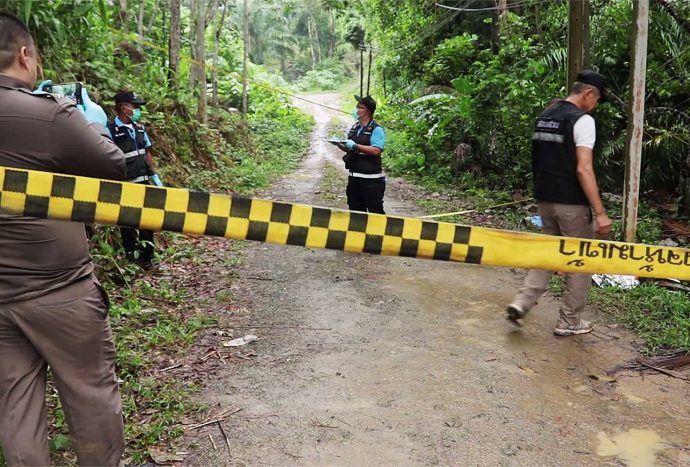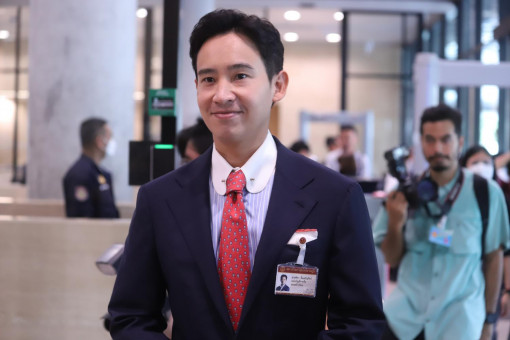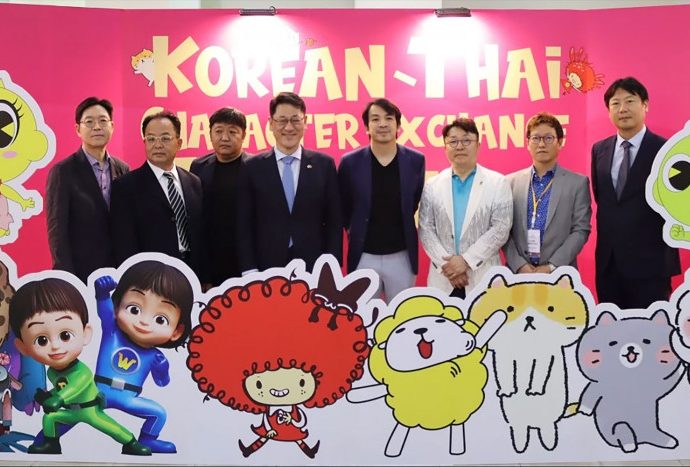Thousands evacuated as Typhoon Talim pummels southern China, Vietnam
BEIJING: A quarter million people were evacuated in southern China and Vietnam before a major typhoon roared ashore late on Monday (Jul 17) bringing fierce winds and rain and forcing the cancellation of hundreds of flights and trains. The China Meteorological Administration said typhoon Talim, the fourth typhoon of theContinue Reading
ONCB finds drugs bound for Australia

PUBLISHED : 18 Jul 2023 at 05:14
The Office of the Narcotics Control Board (ONCB) has so far this year foiled 35 drug smuggling cases at airports and seaports, leading to the confiscation of 973.4 kilogrammes of methamphetamine and 70.7kg of heroin bound for Australia.
Wichai Chaimongkol, secretary-general of the ONCB, on Monday said the Airport Interdiction Task Force (AITF) and the Seaport Interdiction Task Force (SITF) closely cooperated on these transnational criminal cases.
ONCB director Prin Mekhanan was assigned to lead an operations team consisting of members of the ONCB, the AITF and the SITF to conduct crackdowns, he said.
The anti-trafficking operations were conducted by the Customs Department, the Narcotics Suppression Bureau, the Armed Forces Security Centre and the ONCB, Mr Wichai said.
In one case, an investigation had found that drugs would be concealed in parcels for international shipping, he said.
Mr Wichai said that on July 14, the team and staff from an international shipping service found two A3-sized paper boxes with “Inkjet Paper” printed on top. The crew found that the boxes contained four bags of heroin wrapped in aluminium foil, weighing about 1.2kg, he said.
Mr Wichai said the parcels were bound for Australia. The ONCB, therefore, contacted the Australian Federal Police (AFP) in Thailand to investigate a suspected network behind the smuggling, he said.
He said that the evidence could be traced back to traffickers in Thailand and Australia who previously attempted to ship drugs via airports and sea ports.
The drugs were concealed in parcels registered with an international shipping service, bound for Australia, he said.
He said the ONCB had tracked down key figures of a drug trafficking business in Thailand, leading to the AFP to sequester many assets owned by drug trafficking suspects in Australia.
Commentary: More than parent care leave, employers must provide supportive culture for working caregivers

There needs to be better communication among management, human resources and employees on the best approach. Employers concerned about potential abuse of the leave system may ask employees (at least initially) to provide documentation, such as a medical certificate or an appointment chit.
Depending on employee demographic and needs, management may decide to offer more parent care leave as part of corporate benefits or grant more leave on an ad-hoc basis. Companies can review these policies every few years to make beneficial adjustments.
Overall, companies will benefit by promoting a flexible work culture with parent or family care in mind. Parent care leave could even make employers stand out in a tight labour market if more workers expect to take on some caregiving.
SOCIETAL NORMS AND FLEXIBLE WORK ARRANGEMENTS
It is a caring workplace culture, not parent care leave, that needs to be mandated. But can it?
The way forward in balancing business interests with caregiving responsibilities is one Singapore has to chart itself, though overseas examples can provide some ideas. In Australia, employees are entitled to 10 paid days of personal leave that encompasses sick leave and carer’s leave. In Germany, legislation provides for up to 10 days unpaid leave in case of a care emergency.
However, the societal norms are different. In these countries, seniors typically retire on their own or live in retirement homes, often far away from their children, using their savings and pension benefits to fund living expenses.
Commentary: Despite the excitement, Indiaâs South China Sea policy remains unchanged
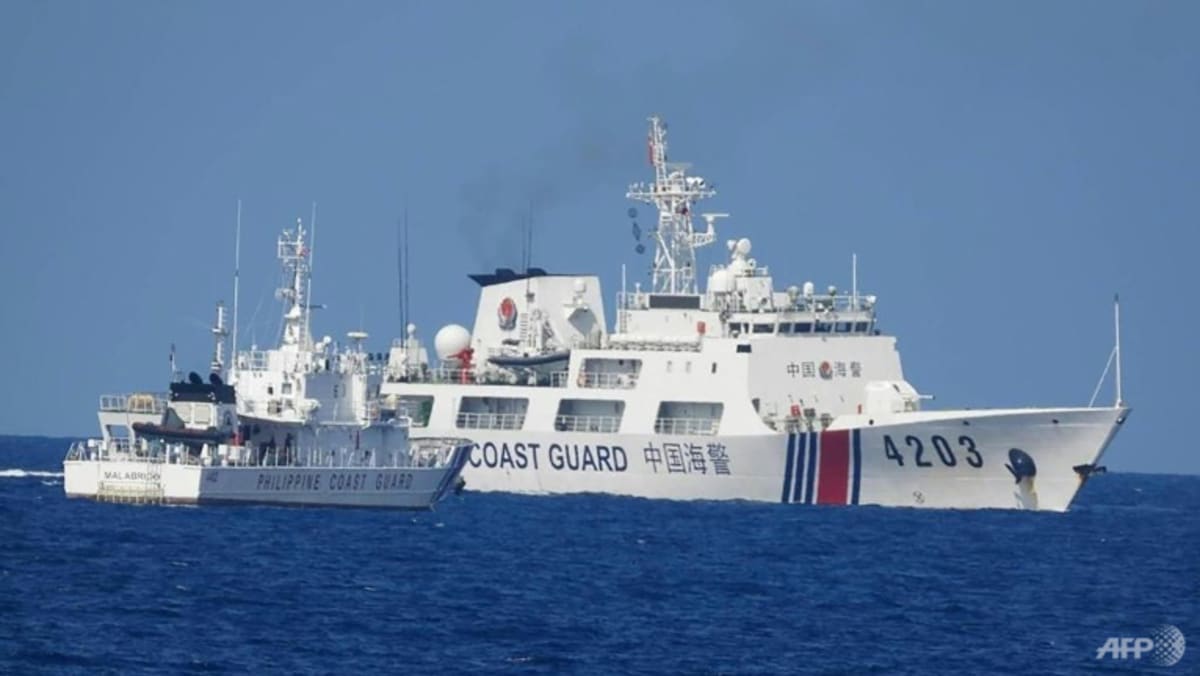
NEW DELHI: An India-Philippines joint statement last month has caused a stir. Subrahmanyam Jaishankar, India’s Foreign Minister, and his Filipino counterpart, Enrique Manalo, issued a joint statement on Jun 29 calling for China to abide by the 2016 arbitral award on the South China Sea.
It sparked a flurry of commentary in the media speculating a shift away from India’s long-standing neutrality on competing territorial claims in Southeast Asia.
While India has long supported norms enshrined in the UN Convention on the Law of the Sea (UNCLOS), some experts pointed out, this was the first time that New Delhi had explicitly called on China to heed the arbitral tribunal’s 2016 ruling.
The development – although significant – ought to be viewed in perspective. A joint statement by countries seeking improved ties follows diplomatic practice. Not infrequently, one side pushes the other to take positions the latter may not be entirely comfortable with but is potentially open to considering as the matter is deemed a core interest by its partner. This is often the case with Southeast Asian states and their partners in Asia and Europe.
When the G7, the Quad, and the European Union expressed their support for the Philippines’ claims in the South China Sea last month, for instance, some member states were wary of the prospect of riling China.
Yet, they said what had to be, knowing full well that China would object. It did. Beijing slammed the move, terming it a blatant interference in its internal affairs.
OTHER FACTORS AT PLAY
It’s not as if geopolitics is the sole factor influencing the implementation of rules and norms in the South China Sea.
Mae Sa Elephant Camp on the brink of closure
PUBLISHED : 18 Jul 2023 at 04:17

Chiang Mai: Family-run Mae Sa Elephant Camp in Mae Rim district of this northern province could face closure due to a prolonged inheritance legal battle between the camp owner’s eldest daughter and his wife (her stepmother).
Anchalee Kalamaphijit, the manager of the Mae Sa Elephant Camp and the eldest daughter of the late camp owner, Chuchart Kalamaphijit, said on Monday that the camp is having liquidity problems.
One issue affecting the camp’s situation is the ongoing legal dispute related to Chuchart’s will, which passes on businesses worth one billion baht to his children and his wife, she said.
Ms Anchalee said that officials from the State Property Office had sent notices of the camp’s pending payment of rental fees for their campsite, worth several hundred thousand baht.
Months before his death, Chuchart had made his wife, Thitirat Kalamaphijit, and his son co-executors of the will, giving them a large amount of money while leaving his eldest daughter only a pair of tusks.
However, Ms Anchalee was later made another co-executor of her father’s will.
She also filed a lawsuit against six suspects accused of embezzling 117 million baht of her father’s money.
With these disputes having rumbled on since 2019, coupled with the loss of revenue during the Covid-19 pandemic, Mae Sa Elephant Camp had to cancel its elephant show to cut costs.
Ms Anchalee said that many mahouts had resigned, and the business has been downsized, leaving only an elephant care programme where tourists can help bathe and feed elephants.
“We are pushing Mae Sa Elephant Camp to become a foundation so that domestic and international visitors will still be able to experience elephant conservation in nature,” said Ms Anchalee.
New Covid subvariant ‘not a problem’

PUBLISHED : 18 Jul 2023 at 04:11
NEWSPAPER SECTION: News
The newly discovered EG.5.1 subvariant of the Omicron strain is unlikely to replace the XBB.1.16 subvariant as the dominant Covid-19 mutation in Thailand because of its weakened ability to attach to the host cell, according to Ramathibodi Hospital’s Centre for Medical Genomics.
The centre said on Monday that while the number of cases involving the EG.5.1 subvariant has been on the rise across the world, the strain isn’t likely to cause a problem in Thailand.
Around 7% of all Covid-19 cases reported in China were caused by the EG.5.1 subvariant, compared to 0.336% in Thailand.
Killer held after getaway car crashes

PUBLISHED : 18 Jul 2023 at 04:00
SURAT THANI: A man who killed four rubber plantation workers in Chumphon has been arrested, after his stolen getaway car was involved in an accident in Kanchanadit district yesterday.
The suspect, identified only as Praphan, 44, was arrested between Surat Thani’s Chai Buri district and Krabi’s Plai Phraya district yesterday.
Praphan, from Chumphon’s Tha Sae district, worked at a rubber plantation in Chumphon’s Sawi district owned by one of the victims, identified as Prayong, 61. Prayong’s body was found on July 16, along with the bodies of three workers from Myanmar. All were found to have been shot.
Praphan became the prime suspect, as he was known to often argue with Prayong. He killed the workers because he believed one of them stole rubber he had tapped, investigators said.
DUP…Key coalition figures launch charm offensive
PUBLISHED : 18 Jul 2023 at 04:00

Key figures in the eight-party coalition reportedly contacted members of the current government and senators over the weekend to seek support for Move Forward Party (MFP) leader Pita Limjaroenrat ahead of the second round of voting to select a prime minister tomorrow.
These figures, including Mr Pita and MFP secretary-general Chaithawat Tulathon, were said to have approached the present government MPs and senators who abstained in the prime minister vote last Thursday.
Their latest approach was said to be softer, and some were surprised that Mr Pita contacted them personally.
In the joint sitting of MPs and senators, Mr Pita only received 324 of the 375 votes needed to become premier. Of those present at the vote, 182 voted against him, while 199 abstained.
Seri Ruam Thai Party leader, Pol Gen Sereepisuth Temeeyaves, said he, at the request of the MFP, reached out to the Democrat Party and the Chartthaipattana Party and asked them to vote for Mr Pita in the second round, but they did not reply.
Pol Gen Sereepisuth said the MFP should be given a second chance in tomorrow’s vote, but if the party still fails to gather enough support, it should let Pheu Thai take the lead in forming a coalition.
He suggested that Mr Pita and the MFP try to reach a compromise if they wanted to be the government and that they should not let party supporters dictate what they should or should not do.
Chartthaipattana Party leader Varawut Silpa-archa admitted yesterday he was contacted by Pol Gen Sereepisuth to consider joining the coalition, but he said he could not make that decision himself.
However, he said Chartthaipattana could not do business with the MFP if it did not back down from amending the lese majeste law. Mr Varawut also said the party abstained in the last vote because it respected those who voted for the MFP.
Peace talks await input from new govt

PUBLISHED : 18 Jul 2023 at 04:00
A top general has said that efforts to restore peace in the deep South will not be affected as negotiators await direction from a new government.
Gen Wanlop Rugsanaoh, head of Thailand’s Peace Dialogue Panel, said yesterday that talks between the Barisan Revolusi Nasional Melayu-Patani (BRN) and the Thai government will continue for sustainable peace in the southernmost provinces.
Gen Wanlop said he was waiting for the new government to take office, and he expressed confidence it would pick up where the caretaker government left off.
He added the caretaker government set a clear framework for solving the unrest in the southernmost provinces.
He said the Joint Comprehensive Plan towards Peace (JCPP) operation must continue to try and end the longstanding conflict and return peace to the region.
Gen Wanlop yesterday chaired a meeting of coordinating area committee members at the CS Pattani Hotel in central Pattani to discuss the progress of the peace dialogue.
The meeting also acknowledged hearings from representatives of eight civil society groups in three southernmost provinces and four districts of Songkhla.
Participants at the meeting included Fourth Army Region chief Lt Gen Santi Sakuntanak, who is also director of Internal Security Operation Command (Isoc) Region 4, the region army’s deputy commander Lt Gen Uthit Anantananon, and 5th Infantry Division chief Maj Gen Woradet Detraksa.
Lt Gen Santi said he also foresees no disruption to the peace dialogue with BRN, with Malaysia as the facilitator.
He said the coordinating area committee would push to ensure the talks align with the new government’s policy.
He said he did not think the new government’s direction on the issue would be very different from the current peace restoration policy.
“We can work with every party for peace to be restored in the area,” he said.
Animation fun at heart of exhibition

Digital character industry touts boon
PUBLISHED : 18 Jul 2023 at 04:00
South Korean and Thai businesses involved in digitally animated characters are seeking ways to improve cooperation while enriching cultural exchanges, speakers at the launch of the “Korean-Thai Character Exchange Exhibition” said yesterday.
Shin Chang-hwan, the Korea Animation Producers Association president, said the character industry grew dramatically after the pandemic due to “digital disruption”, resulting in increased emoticon usage.
Consumption of online content has increased over the past decade, and many digital character products have come about as a result, Mr Shin said.
“An increase in the bonds between the two countries’ digital industries could help people to understand each other more,” he said.
“These digital characters reflect each other’s cultural aspects and lifestyles while helping promote bilateral economic ties through investment, research and digital character development.”
The Korean Cultures, Tourism and Sports Ministry and Korean Creative Content Agency have been working to promote the Korean character industry, which earns 20 trillion won (546 billion baht) annually.
The ministry has assisted the industry in making inroads abroad within the US, European and other Asian nations such as Japan.
“After 2020, Korea shifted its emphasis to Asean countries as we share many cultural similarities compared to Westerners. So we are looking for more opportunities for our characters in regional cultural exchanges,” he added.
Sumith Simargool, Thailand Digital Content Association (DCAT) president, said many fun and creative characters had been produced in Thailand, but they depend on foreign online platforms to be promoted.
“I think if Thailand can develop its own strong platform, it will create more opportunities for Thai character creators [to promote their work],” he added.
Korean and Thai Characters such as “Shinbi’s Haunted House” and “ToriYang” from Korea and “Shew Sheep” and “Cat Company” from Thailand are being promoted at the exhibition, which is being held at the Korean Cultural Center in Thailand until Aug 25.

